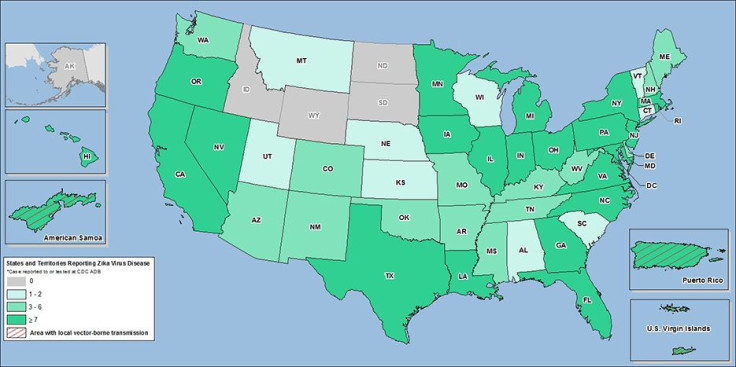Zika Virus Funding Controversy: What You Need To Know About Tuesday’s Senate Vote And Why Democrats Vowed To Block $1.1B To Fight The Virus

More than five months ago, U.S. President Barack Obama made a request from Congress: Please set aside more than $1.8 billion to “enhance our ongoing efforts to prepare for and respond to the Zika virus, both domestically and internationally.” Since then, Congress has failed multiple times to come to an agreement, over different amounts and sources of funding — and it could do so yet again Tuesday, with a key vote in the Senate on a $1.1 billion measure that, for several reasons, could once again fall through.
The vote comes just as the state of Florida confirmed Tuesday morning its first case of microcephaly, a birth defect linked to the mosquito-borne Zika virus. The mother reportedly contracted Zika in Haiti, but the birth adds to the sense of urgency of needing to prepare for the consequences of the virus in affected parts of the U.S.
The Senate was scheduled to vote Tuesday on a Zika funding measure passed by the House of Representatives early Thursday morning with a vote of 239-171 that fell largely along party lines.
The White House promised to veto the bill, which it said diverted funding from the Affordable Care Act as well as from a previous emergency fund designated for combating the Ebola epidemic of 2014.

Democrats criticized the bill because it includes a provision that cuts funding to Planned Parenthood, the national reproductive health organization. Sen. Chuck Schumer, D-N.Y., called those elements of the measure “external poison pills.” Senate Democrats have vowed to block the measure Tuesday.
The bill up for a vote Tuesday was worked out by negotiators in the House and Senate after the Senate passed a $1.1 billion plan in May that did not require other spending cuts, while the House proposed a $622 million measure that did reallocate funds from other health programs.
It remains to be seen how the current plan could pass the Senate without at least some Democratic support. It would need 60 votes to clear; in the current Senate, Republicans hold 54 seats.
As of June 22, the U.S. had no locally acquired cases of the Zika virus, although it has 819 travel-related ones, according to the U.S. Centers for Disease Control and Prevention. The CDC's Zika pregnancy registry has counted 265 pregnant women in states and the District of Columbia for whom laboratory evidence suggests a possible infection. In U.S. territories, including Puerto Rico, 216 pregnant women had laboratory evidence of possible infection.
© Copyright IBTimes 2024. All rights reserved.






















